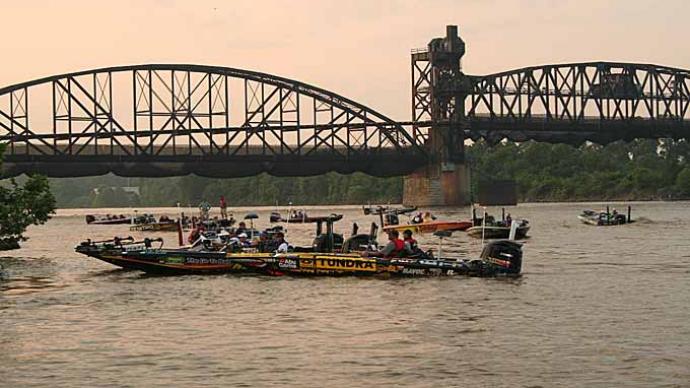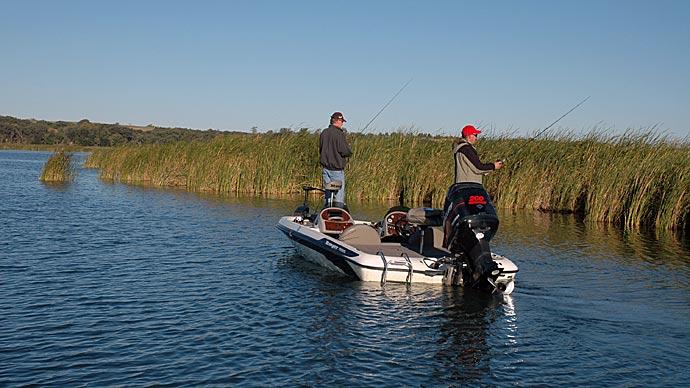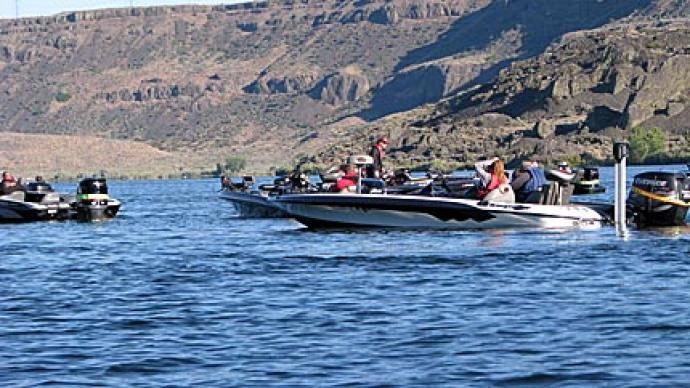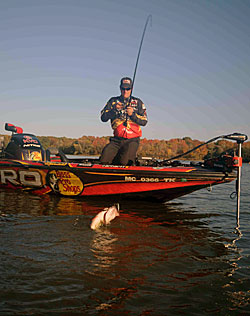
Trade schools and colleges offer you a chance to learn about a particular profession that you can turn into a career. However, no such schools were available to many of today’s professional bass anglers, so they had to learn their trade through countless self-help hours of on-the-water training.
Some colleges now offer bass fishing clubs for aspiring pros. Still, many of the Bassmaster Elite Series competitors graduated from the College of Hard Knocks, where they had to learn many lessons the hard way. The following pros recall some hard-learned lessons that cost them in tournaments.
Mark Menendez — Incorrectly tying a Palomar knot proved costly to the Kentucky pro when fluorocarbon line was introduced. “When you tie the Palomar knot, and you slip the bait back through the loop you created, that loop needs to stay on top of the knot,” Menendez said. “When we first got fluorocarbon, it was very brittle, and if that loop were on the side of the Palomar knot, it would cut through it every time. That cost me thousands of dollars and multiple points over the years.”
Menendez also learned to keep fresh oil in his motor’s lower unit and check for fishing line in his prop when a lack of boat maintenance cut into his fishing time during the 1995 Bassmaster Top 150 on Wheeler Lake. While making a long, cold run one morning, his engine shut down. “The lower unit locked up completely, and it was from fishing line in the seal,” said Menendez, who ended up finishing 53rd in the tournament. “If you lose that lower unit seal from line and run your gear grease too long, it will fail on you.“
Jordan Lee — The Alabama pro experienced the worse tournament of his rookie year in the Bassmaster Elite Series when he finished 99th at Lake Havasu last May. Lee's downfall was failing to prefish for the event and do his homework on the lake. “I didn’t get a real good idea of what I needed to do to be successful there,” he lamented.
Todd Faircloth — The Texas pro recalls many instances early in his career when he failed to manage his time on the water efficiently. Faircloth remembers times when he would be 20 miles up a lake and decided he needed to run 30 miles the other way. “If you are fishing a tournament and whether it is a one-day or jackpot deal or a four-day event, you have to be able to manage that time,” he said.
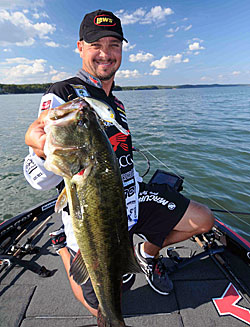
“You have to be able to do it efficiently, and what I mean by that, try not to be so spread out. Don’t spend your entire time running for so many miles. Some of my most successful tournaments have been when I found an area of the lake or a section of a creek and just learned more and more about it as the tournament progressed. I think I am practicing more efficiently now than earlier in my career when I wanted to know what was going on from this end to that end. Now I don’t care what is going on at that end; I want to learn about this end of the lake. I will spend all of my time there, and I will be more efficient with my time.”
Kevin VanDam — During the beginning of his illustrious career, VanDam struggled with trusting his instincts. “When you start to trust your instincts and see the rewards you can reap doing that, it builds your confidence to do that more,” he said. “A lot of times, you will go to an area that you practiced and had some success in, and it just is not happening. You know in your gut that things are different. It is cloudy now, sunny then, windy now, and calm then. Just because it happened before doesn’t mean you can make it happen again. So instead of milling around and wasting an hour of your time, when your instincts tell you that you have to make an adjustment or make a change of location or lure presentation, learn to trust your instincts.”
Jason Christie — Early in his career, Christie would fret during a tournament if he missed the morning bite, and his confidence would be shot the rest of the day. “I expected it to happen early in the morning, but now I have seen it happen in the last 30 minutes where I have culled all of my fish or I catch a couple of big ones and go from being in the bottom of the pack to leading,” he said. “The last hour or the last minute is just as important as the first minute. You are just as apt to catch a 7-pounder on the last cast as the first cast or any cast in between.”
Marty Robinson — During the 2010 Bassmaster Elite event on Kentucky Lake, Robinson learned the importance of fishing an area at the right time. Robinson caught fish during practice at a spot around noon. However, he was so pumped up about fishing there that he ran to it first thing in the morning of the competition days but failed to catch any fish there. He saw a fellow competitor fishing the same spot in the afternoons, and Robinson found out that the other guy caught several bass there. “It blew my mind,” said Robinson, who finished 38th in the tournament.


